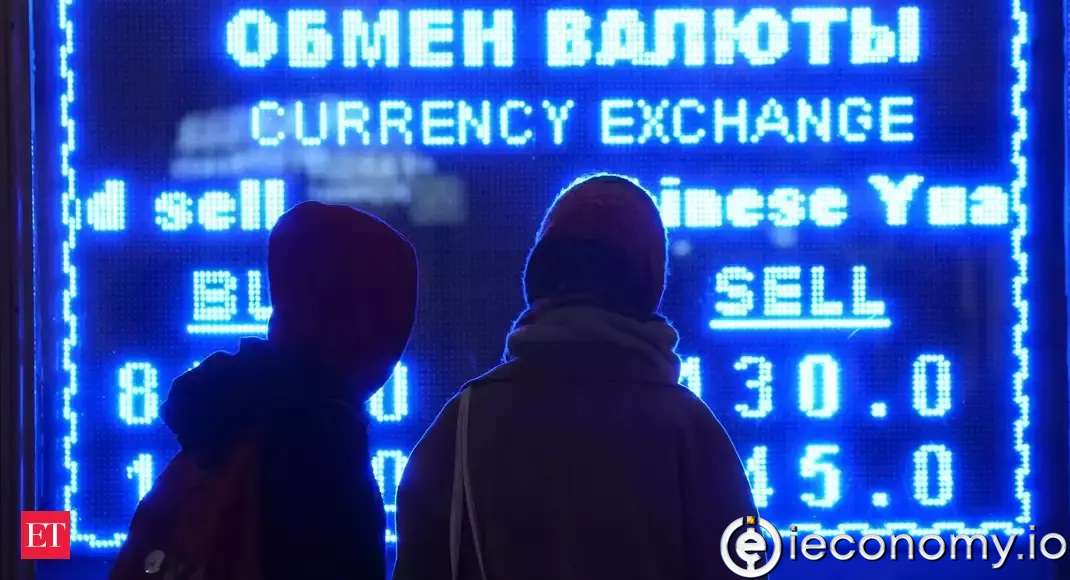1474
0
The EU expects the Russian economy to shrink by at least 15%
Josep Borrell, High Representative of the European Union (EU) Foreign Relations and Security Policy, predicted that the Russian economy...

Yazar: James Gordon
Yayınlanma: 15 Mart 2022 02:40
Güncellenme: 2 Mart 2026 20:52
Josep Borrell has published a blog post on the Russia-Ukraine war and its possible effects on the EU.
Stating that the war caused significant damage to the global economy along with the loss of thousands of lives, Borrell stated that EU leaders agreed on increasing Europe's economic resilience, reducing energy imports from Russia and strengthening defense.
Recalling that the Russian economy was also adversely affected due to the war started by Russian President Vladimir Putin, Borrell noted that the ruble lost half of its value and inflation increased rapidly.
Reminding that the Moscow Stock Exchange is closed and many international companies have left the country, Borrell said, "The Russian economy is expected to shrink by at least 15 percent this year. There is a risk that a weakened and isolated Russia will become very dependent on China in the future."
Borrell pointed out that the war also had important effects in Europe and stated that prices, especially energy, have increased and that this increase will continue.
Pointing out that the EU must agree to pay the price to stop the war, Borrell said, "The future of our security and democracy depends on it. The price to be paid is freedom."
The third "asymmetric shock" after the Russia-Ukraine war, the 2008 financial crisis, and the Covid-19 pandemic
He recalled that for EU countries, the Russia-Ukraine war is the third "asymmetric shock" after the 2008 financial crisis and the Kovid-19 pandemic, and he emphasized the importance of showing solidarity with the countries most affected by this so that the said asymmetric shock does not weaken the EU. Pointing out that the EU Commission will announce its plan to increase energy supply security at the end of March, Josep Borrell said, "It is not possible for us to continue to feed Putin's war machine with our energy imports." made its assessment. Borrell drew attention to the need to reconsider the wholesale electricity pricing system and reminded us that although gas is a small part of the electricity generation system, it drives prices. Explaining that diversification of supply, efficient use of energy and accelerating investment in renewable resources are essential to reduce dependency on Russia, Borrell stated that it will be necessary to increase the imports of liquefied natural gas (LNG) from the USA, Qatar, Norway and African countries. Reminding that infrastructure that can process LNG is needed in order to increase supply diversity successfully, Borrell explained that the LNG infrastructure in Europe is not evenly distributed in the current situation, and that it will be necessary to establish and organize new infrastructure to pool LNG resources. Stating that the EU's energy consumption should also be reduced, Borell said, "Otherwise, our efforts to reduce our dependence on Russia may lead to a sharp increase in the EU's energy bill. In addition, we must avoid replacing one excessive foreign dependency with another."İLGİLİ HABERLER





European stocks soared and focus shifted to German retail sales after Powell's speech!

Forex Signal For TRY/USD: Inflation Slowdown in November.

Forex Signal For GBP/USD: Bullish Trend Still Not Breaking While Recovery Continues.

Forex Signal For EUR/USD: Starry US Data Points to Higher Fed Increases.

Forex Signal For BTC/USD: Downside Continues as Bitcoin Recovery Moves Less.
En Popüler Haberler
Yorum Yap
Yorumlar
Henüz yorum yapan yok! İlk yorumu siz yapın...